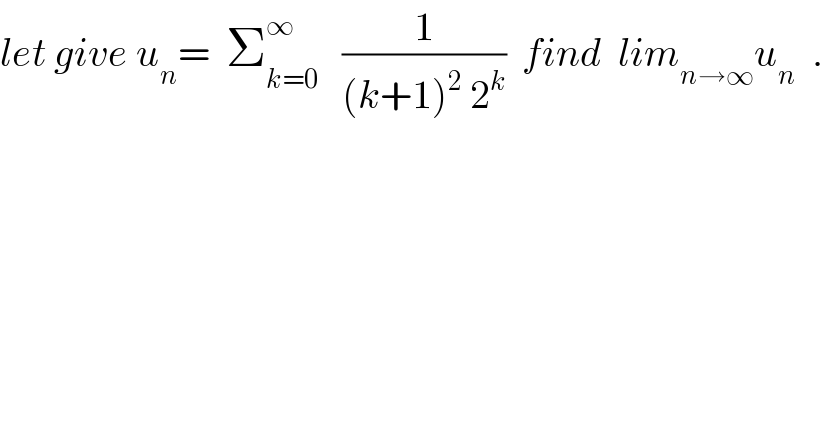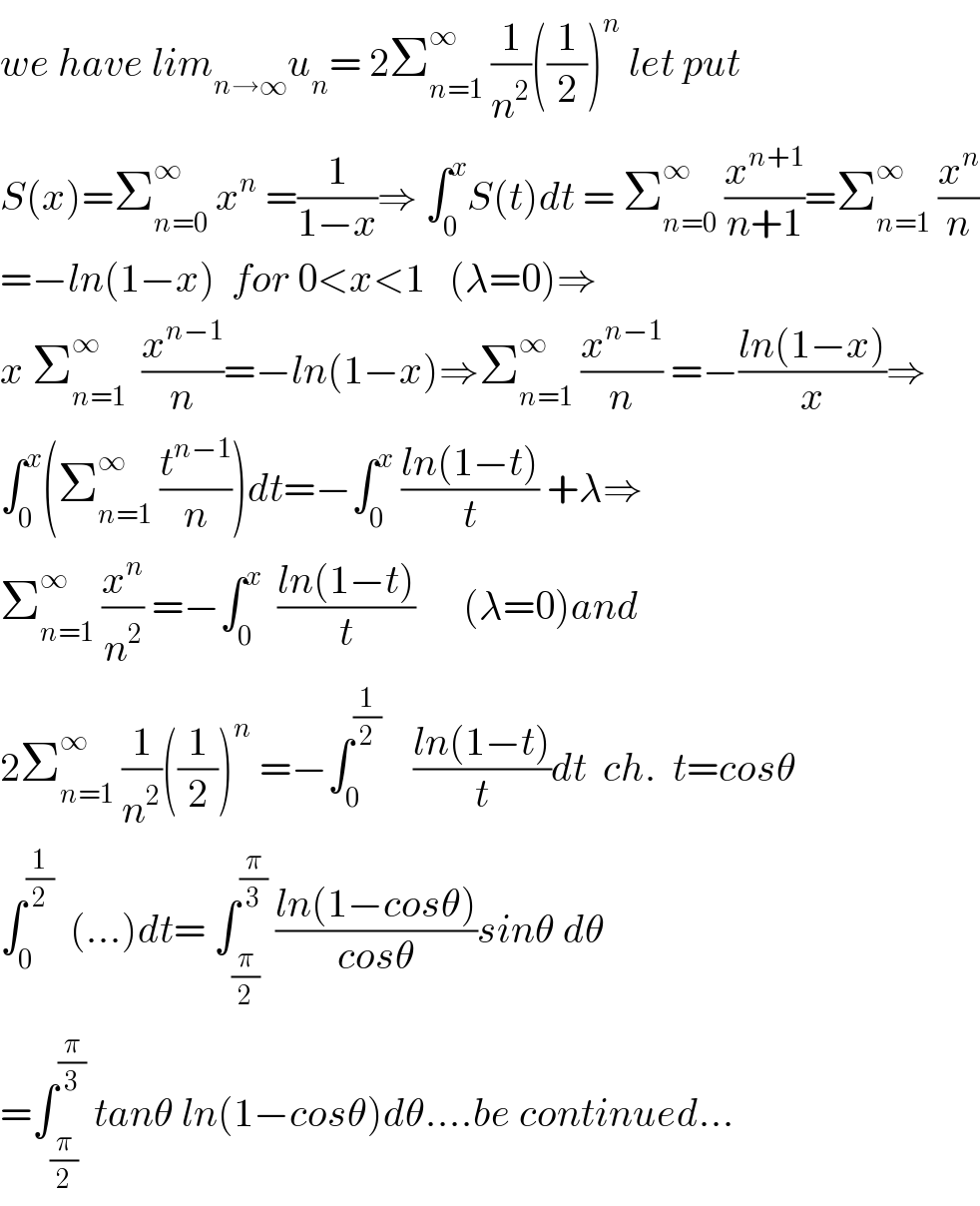
Question and Answers Forum
Question Number 29505 by abdo imad last updated on 09/Feb/18

Commented by abdo imad last updated on 11/Feb/18

Commented by abdo imad last updated on 13/Feb/18

Commented by abdo imad last updated on 14/Feb/18

| ||
Question and Answers Forum | ||
Question Number 29505 by abdo imad last updated on 09/Feb/18 | ||
 | ||
Commented by abdo imad last updated on 11/Feb/18 | ||
 | ||
Commented by abdo imad last updated on 13/Feb/18 | ||
 | ||
Commented by abdo imad last updated on 14/Feb/18 | ||
 | ||